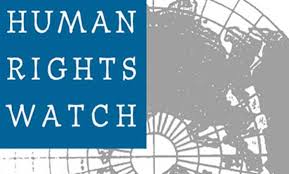Six years ago Canada was among a group of countries that took the lead to adopt a crucial United Nations resolution to promote reconciliation and justice after decades of war and persecution in Sri Lanka.
The human rights situation on the island is again deteriorating, and it is crucial for Canada to step up to take diplomatic action once more. In a hard hitting new report, the UN high commissioner for human rights, Michelle Bachelet, says that “Sri Lanka remains in a state of denial about the past,” and the “current trajectory sets the scene for the recurrence of the policies and practices that gave rise to grave human rights violations.” She called for member states to take urgent action.
Tens of thousands of civilians were killed in the civil war between government forces and the separatist Liberation Tigers of Tamil Eelam (LTTE), which ended in 2009. Both sides committed numerous war crimes, particularly in the final months of the war. At that time Mahinda Rajapaksa was president, and his brother, Gotabaya Rajapaksa, was the defence secretary. They oversaw armed forces that repeatedly and indiscriminately shelled civilians and summarily executed captured LTTE fighters. Critics of the government and suspected LTTE supporters were murdered, tortured, and “disappeared” in white vans, abuses that continued even after the fighting ended. When the Rajapaksas finally lost power in the 2015 presidential election, there seemed to be an opening for change.
Canada is a member of a core group of countries at the UN Human Rights Council that supported a landmark resolution in 2015. The resolution offered victims of all communities in Sri Lanka the hope of truth, justice, and reconciliation, and upheld the principle of accountability for the most serious international crimes. Canada’s role was welcomed by victims’ groups, and there were significant improvements in human rights, particularly freedom of expression. The shadow of fear and repression was lifted.
Now fear has returned. In November 2019 Gotabaya Rajapaksa was elected president and he appointed his brother, Mahinda, prime minister. In a recent speech to celebrate his first year in office, President Rajapaksa made clear what his government is all about. He reassured his supporters that the “era of betraying war heroes… [has]now come to an end.”
The UN is warning of renewed violations. Police and intelligence officers have sought to instill fear in journalists and human rights defenders, as well as victims of past abuses and their families, as documented by the UN secretary-general in his annual report on reprisals.
Last February, soon after Rajapaksa took office, the government renounced its commitments under the 2015 Human Rights Council resolution. He has appointed numerous people who were implicated in war crimes, including his chief of defence staff, Gen. Shavendra Silva, who is banned from traveling to the United States for “his involvement, through command responsibility, in gross violations of human rights, namely extrajudicial killings.”
In March, Rajapaksa pardoned a former army sergeant, Sunil Ratnayake, who killed eight Tamil civilians including children, one of very few security forces members ever held accountable for violations. In September, Sri Lanka told the Human Rights Council that allegations against senior military officers are “unacceptable” and without “substantive evidence.”
In October, the government amended the Constitution to remove the remaining constraints on political interference in Sri Lanka’s courts. The few officials who have sought to pursue justice are now at risk.
The new administration in Sri Lanka has made clear it intends to block any efforts to help citizens come to terms with a bloodied past. Earlier this year the authorities even demolished a monument in Jaffna commemorating Tamil civilian victims of the conflict.
Instead of reconciliation and justice, the government is promoting extremist Sinhala Buddhist nationalism that discriminates against minority groups. Tamil communities in the north and east fear increasing instances of arbitrary and abusive behavior by security forces. Meanwhile, there has been an alarming rise in discrimination against Muslims, such as a ban on the burial of people who died with Covid-19, which denies the religious rights of Muslims and has no medical justification.
At its next session beginning later this month, the Human Rights Council will face a crucial decision: whether to allow the Sri Lankan government to continue down this path, or take action to protect vulnerable Sri Lankans and uphold international law. The UN high commissioner has laid out the stark facts in her report, and made clear recommendations of the measures that are now needed. She has asked the council to support a dedicated UN capacity to collect, preserve and analyze evidence of grave violations in Sri Lanka for use in future prosecutions. She also called upon member states to impose targeted sanctions on those allegedly responsible for the abuse.
Canada is well placed to lead these efforts. Steps to advance accountability for international crimes will reduce the growing risk of further horrors. The Canadian government should ensure that that the warning signs are headed, by taking action now.


